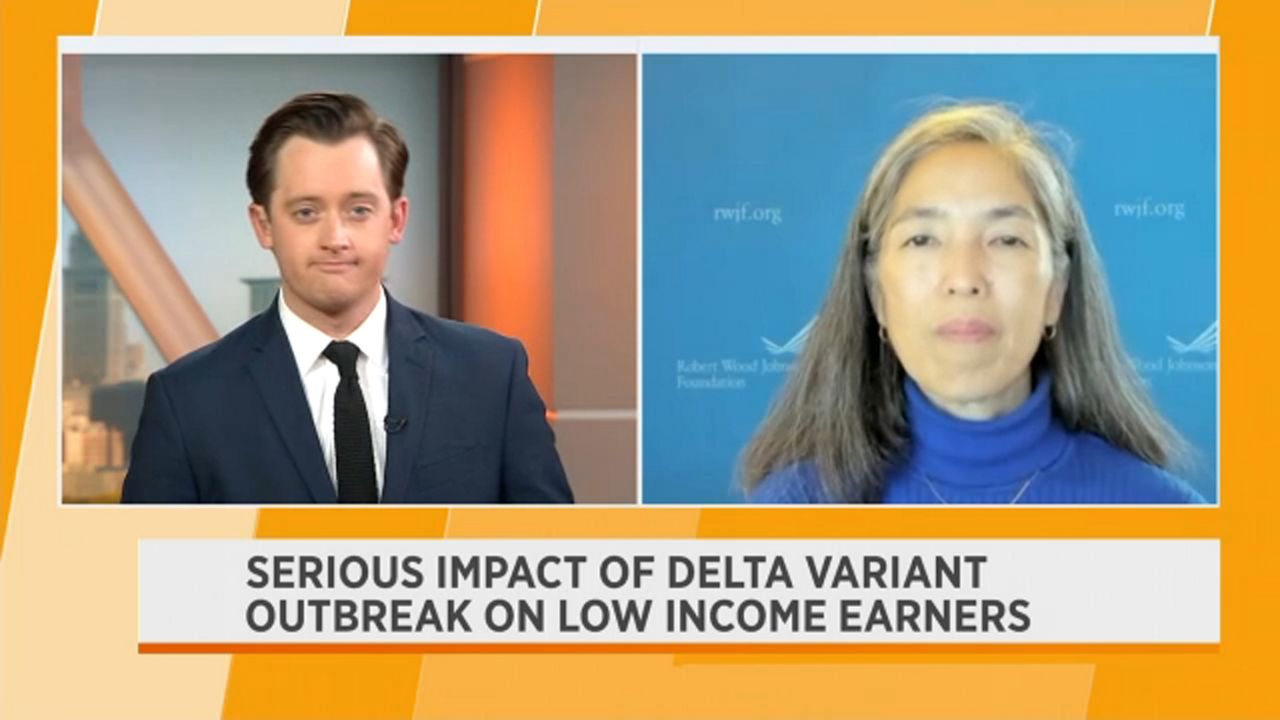OHIO — As governments try to recover from the pandemic, the effects of the coronavirus continue to impact households all across the country.
The delta variant, for instance, has worsened the financial situation for low-income earners.
What You Need To Know
- New poll reveals big impact income and race played during the COVID-19 pandemic and delta variant
- The hardest hit are households with incomes below $50,000 and Black and Latino households with children
- The poll suggests there has been a lot of federal assistance that hasn’t been making it to the hands of communities that need it
The hardest-hit continue to be households with incomes below $50,000, and Black and Latino households with children. Sixty percent of those households face serious financial problems, and 70% of households with annual incomes below $50,000 with children to care for are in dire financial need, according to a recent poll by NPR, Harvard's T. H. Chan School of Public Health and the Robert Wood Johnson Foundation.

Dr. Julie Morita, vice president of the Robert Wood Johnson Foundation, found the results striking.
“What they tell us is that our communities that have struggled prior to the pandemic really were hit hard by the pandemic. Not only from a disease perspective, there are higher rates of hospitalizations and death in our communities of color and our low- income communities,” she said.
Morita added that even though millions and millions of dollars are made available to help people recover financially, those funds are not always reaching the ones who need them.
“We know there has been a lot of federal assistance that hasn’t been making it to the hands of our communities," Morita stressed. “These same groups; our communities of color, our low-income communities were really hit hard financially and were having problems paying bills, paying their rent, making car payments, putting food on their tables.”
There has been a poverty decline due to the federal relief provided by Congress.
According to recent Census Bureau figures, 9.1% of Americans were living below the poverty line last year, down from 11.8% in 2019.
But Morita said many are still hurting.
“There are these federal assistance programs that are in place to help make nutrition programs more accessible, to help with rental assistance, but those programs need to get off the ground and we need to make sure people are able to take advantage of them so that they can pay for their bills,” she said.
The key approach, according to Morita, is keeping in mind these same kinds of protections need to be sustained in the long run.
“Our communities don’t just have these needs during emergencies and public health crisis, they have them at baselines, so these kinds of programs really need to be sustained in the long run,” she said.
Morita believes the delta variant is also impacting education among children in underserved communities, much like it did last year at the height of the pandemic.
“Children were kept out of school, and a few were doing online learning. Not everybody had access to online learning, of course, they needed internet access, they needed to be able to keep up with what they needed to learn, and so many families felt that their children fell behind,” she said.
“And although there have been millions and millions of dollars pumped in to make sure systems are open, and that they can help children to do better, they still need to have these programs implemented so that our children can catch up."
Morita continued: "It’s critical for us to make sure that we have these dollars in place, it’s important for our school system to use them, and then, we’re looking toward a vaccine that will be available for our children as soon as early November, so it will be key for us to make sure that our kids really get vaccinated so they can get to stay in school.”


